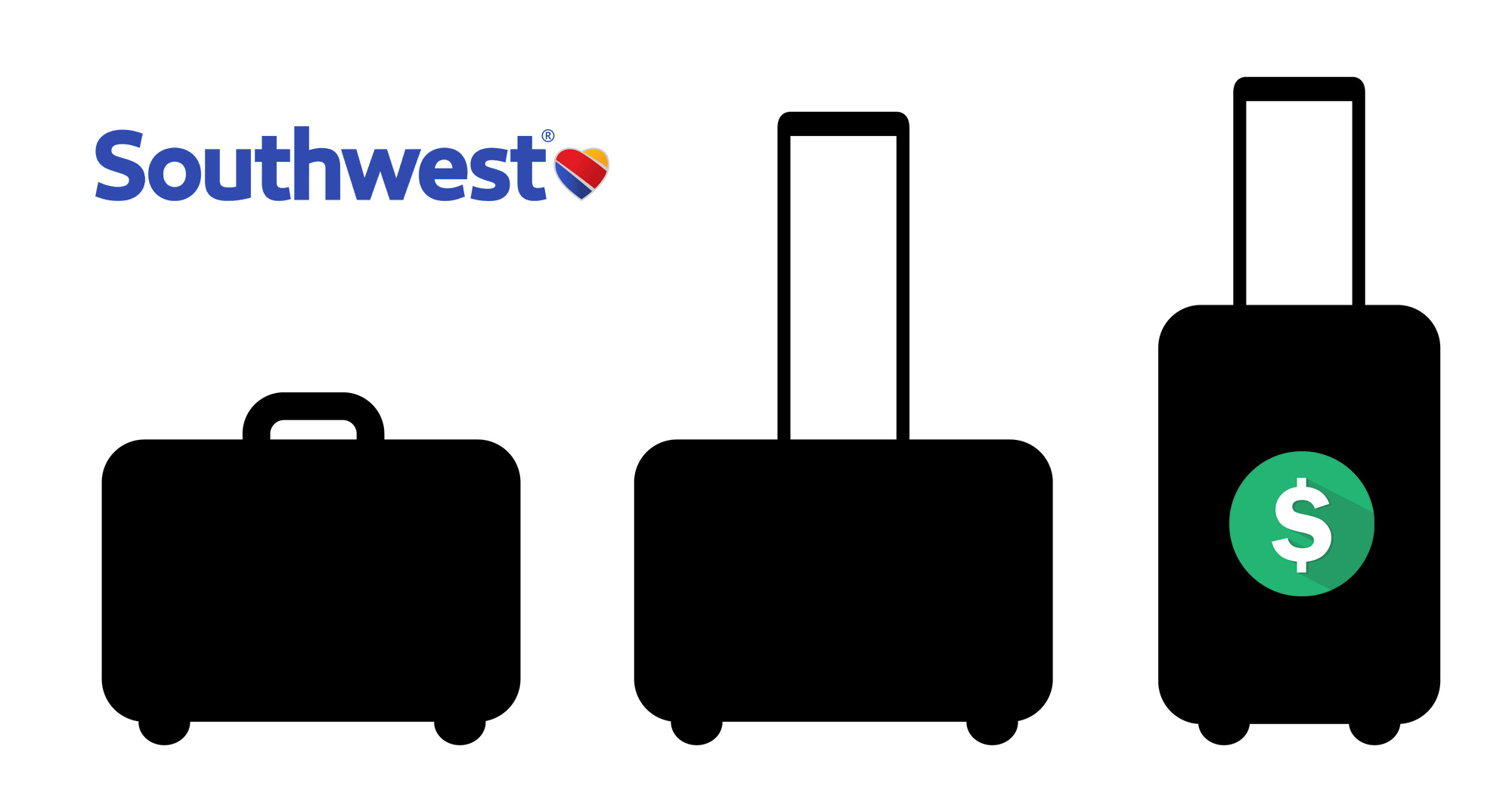How Southwest's New Baggage Fees Could Affect On-Time Performance

Table of Contents
Increased Baggage Handling Time
Southwest's new baggage fees could dramatically increase baggage handling time, impacting their renowned on-time performance. This is primarily due to two key factors: longer check-in and boarding processes, and a higher incidence of baggage mishaps.
Longer Check-in and Boarding Processes
The introduction of baggage fees might incentivize more passengers to opt for carry-on luggage rather than checking bags. This could lead to significant congestion at the gate and extended boarding times.
- Increased wait times at check-in counters: More passengers attempting to check smaller, potentially oversized, carry-ons could lead to longer lines and delays.
- Longer security lines due to increased carry-ons: Increased carry-on luggage means longer security screening times, adding to overall delays.
- Potential gate bottlenecks from passengers struggling to stow oversized carry-ons: Passengers attempting to squeeze oversized carry-ons into overhead bins can cause delays as flight attendants assist and rearrange luggage.
Studies show that a 10% increase in passenger volume can increase boarding time by 15-20%. With more passengers carrying more carry-on bags, Southwest could see a significant increase in boarding times, directly impacting on-time performance.
More Frequent Baggage Mishaps
The increased volume of carry-on luggage also raises the possibility of more frequent baggage mishaps. The sheer number of bags being handled manually increases the chances of errors.
- Increased probability of baggage being misplaced during loading/unloading: The rush to load and unload a greater number of carry-on bags increases the likelihood of misplacement.
- Higher chance of carry-on damage due to over-packing: Passengers attempting to maximize space in carry-ons may overpack, leading to damage and potential delays.
- Potential delays while staff resolve baggage issues: Resolving baggage issues, especially when multiple incidents occur, takes time and can delay departures.
Data from the Department of Transportation shows a strong correlation between baggage handling issues and flight delays. An increase in mishandled carry-ons could directly translate into a decline in Southwest's on-time arrival rates.
Impact on Crew Efficiency
The ripple effects of increased baggage handling extend beyond just boarding; it significantly impacts crew efficiency, both ground and flight crew.
Increased workload for ground staff
The increased volume of baggage and the potential for more baggage-related problems significantly increase the workload for ground staff.
- Increased time spent resolving baggage-related problems: Dealing with lost, damaged, or misplaced bags takes time away from other essential pre-flight tasks.
- Potentially diverting staff from other essential tasks: Staff may need to be diverted from tasks such as cleaning or fueling the aircraft to address baggage issues.
- Leading to cascading delays: Delays in one area can cause a chain reaction, leading to further delays in subsequent processes.
Research indicates that even minor increases in ground crew workload can have a disproportionately negative impact on on-time performance.
Potential knock-on effects on flight crews
Ground delays directly impact flight crews. Delays push back departure times, affecting crew schedules and potentially leading to further cascading delays.
- Crew time constraints: Flight crews have strict duty hours; delays can lead to crew scheduling conflicts.
- Potential for flight cancellations or delays due to crew scheduling conflicts: If a delay pushes a crew past their duty hours, the flight may be cancelled or delayed until another crew becomes available.
- Disruption to operational efficiency: Delays caused by baggage handling issues disrupt the carefully orchestrated schedules of the airline, leading to decreased efficiency.
The knock-on effects on flight crews can lead to significant disruptions, negatively impacting Southwest's overall on-time performance.
Passenger Behavior Changes
Southwest's new baggage fees could also impact on-time performance by changing passenger behavior.
Increased gate agents' workload
The new baggage fee policy might lead to a rise in passenger inquiries and complaints, creating an additional workload for gate agents.
- Higher volume of passenger queries and complaints regarding baggage policies: Passengers may have questions or disputes regarding fees and allowances.
- Impacting overall efficiency: Handling numerous queries takes time and resources away from other gate agent responsibilities.
- Potential for increased wait times for passengers: Dealing with passenger issues creates longer queues and delays for boarding.
Increased passenger interactions and a higher volume of complaints significantly contribute to increased workload for gate agents.
Potential for increased stress and frustration
The introduction of baggage fees introduces a new source of potential stress and frustration for passengers.
- Increased likelihood of arguments at check-in counters: Disputes over baggage fees and allowances can cause delays and disrupt the flow of passengers.
- Potential for unruly behavior: Frustrated passengers might engage in disruptive behavior, further delaying the boarding process.
- Possible ripple effect on other passengers and on-time performance: The negative impact of one passenger's stress can spread, creating a tense environment and further delaying the flight.
Studies have shown that even minor increases in passenger stress can have a negative impact on overall flight experience and punctuality.
Conclusion
Southwest's new baggage fees have the potential to negatively affect their on-time performance through increased baggage handling times, reduced crew efficiency, and changes in passenger behavior. Each of these factors contributes to potential delays, potentially impacting Southwest's historically strong on-time record. The increased volume of carry-on luggage, coupled with potential for increased passenger frustration and ground crew workload, creates a perfect storm for potential delays.
Have you experienced delays due to Southwest's new baggage fees? Share your experience in the comments below and help us understand the full impact of these changes on Southwest's on-time performance. Let's discuss the effects of Southwest baggage fees on airline efficiency and potential solutions.

Featured Posts
-
 Elon Musks Space X Upcoming Starship Launch And Texas Testing
May 29, 2025
Elon Musks Space X Upcoming Starship Launch And Texas Testing
May 29, 2025 -
 Man United To Pursue Liverpool Target Transfer News
May 29, 2025
Man United To Pursue Liverpool Target Transfer News
May 29, 2025 -
 Ajax Zoekt Trainer Heitinga In Pole Position
May 29, 2025
Ajax Zoekt Trainer Heitinga In Pole Position
May 29, 2025 -
 Trumps New Pardon Attorney Ed Martin Targeting Biden Era Cases
May 29, 2025
Trumps New Pardon Attorney Ed Martin Targeting Biden Era Cases
May 29, 2025 -
 Istanbul Negotiations Lulas Push For Putin Zelenskyy Meeting
May 29, 2025
Istanbul Negotiations Lulas Push For Putin Zelenskyy Meeting
May 29, 2025
